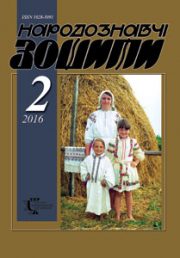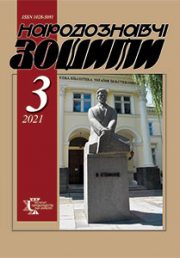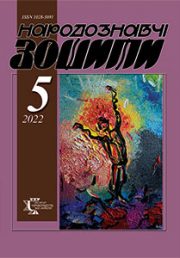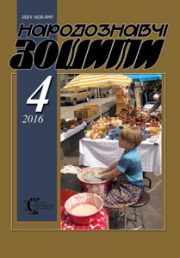The Ethnology Notebooks. 2017, 5 (137), 1208—1234
UDK 304.2(510=161.2)(093.3)
DOI https://doi.org/10.15407/nz2017.05.1208
EXCERPTS FROM OUR CHINESE DIARY: NOTES ON UKRAINIAN STUDIES, EDUCATION AND CULTURE
Ivashkiv Vasyl Mykhailovych, PHD in Philology, professor,
Head of the Department of Ukrainian Folklore Studies named after Filaret Kolessa
at the Ivan Franko National University of Lviv.
Ivashkiv Halyna Mykhailivna, Ph.D in Art Studies,
senior research fellow at the Museum of Ethnography and Artistic Crafts
of the Institute of Ethnology
of the National Academy of Sciences of Ukraine
Svobody Avenue, 15, Lviv, 79000, Ukraine
Contacts: Tel. (032) 2970157; e-mail: ina@mail.lviv.ua
Abstract. The given article highlights peculiarities of everyday life in China in the perception of Ukrainian scholars who lived for almost a year in Shanghai, the biggest city of this country. The author emphasize on Ukrainian presence in this country, namely they write about the Department of Ukrainian Language and Literature and the Centre for Researching Ukraine at Shanghai International Studies University, the Museum “Ukraine” in Jinhua, presentation of Taras Shevchenko’s poetry in the Ukrainian Embassy in PRC, the bronze bust of M. Hohol in Shanghai, an interesting and initiative Ukrainian community of this city etc. The article also describes authors’ impressions after visiting Chinese museums, churches and temples, parks and public gardens in Shanghai, Beijing, Nanjing and Suzhou, a Chinese village, eating Chinese cuisine etc.
Keywords: China, Ukrainian studies, education, culture, Chinese churches and temples, parks, museums.
Received 10.08.2017







